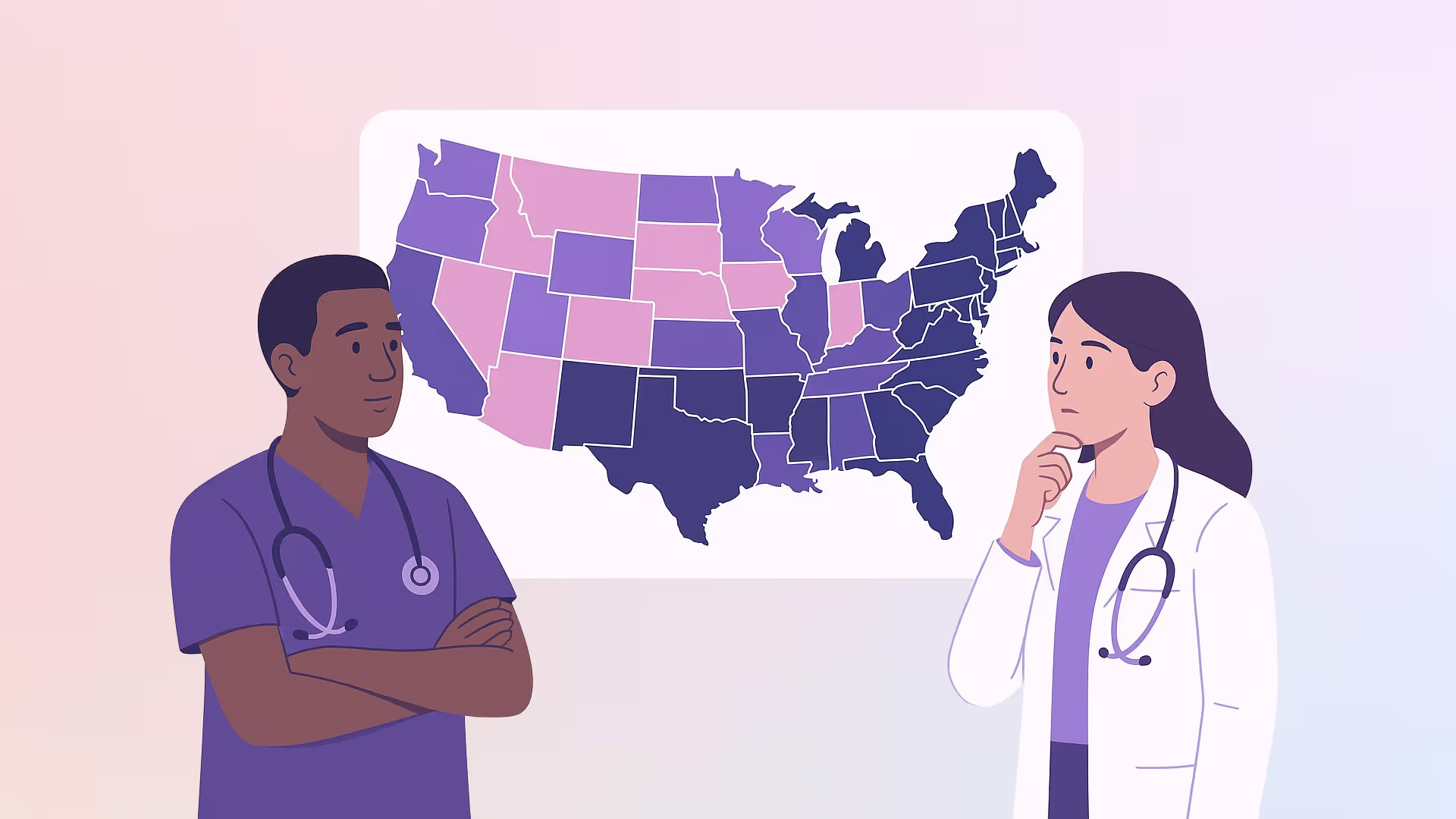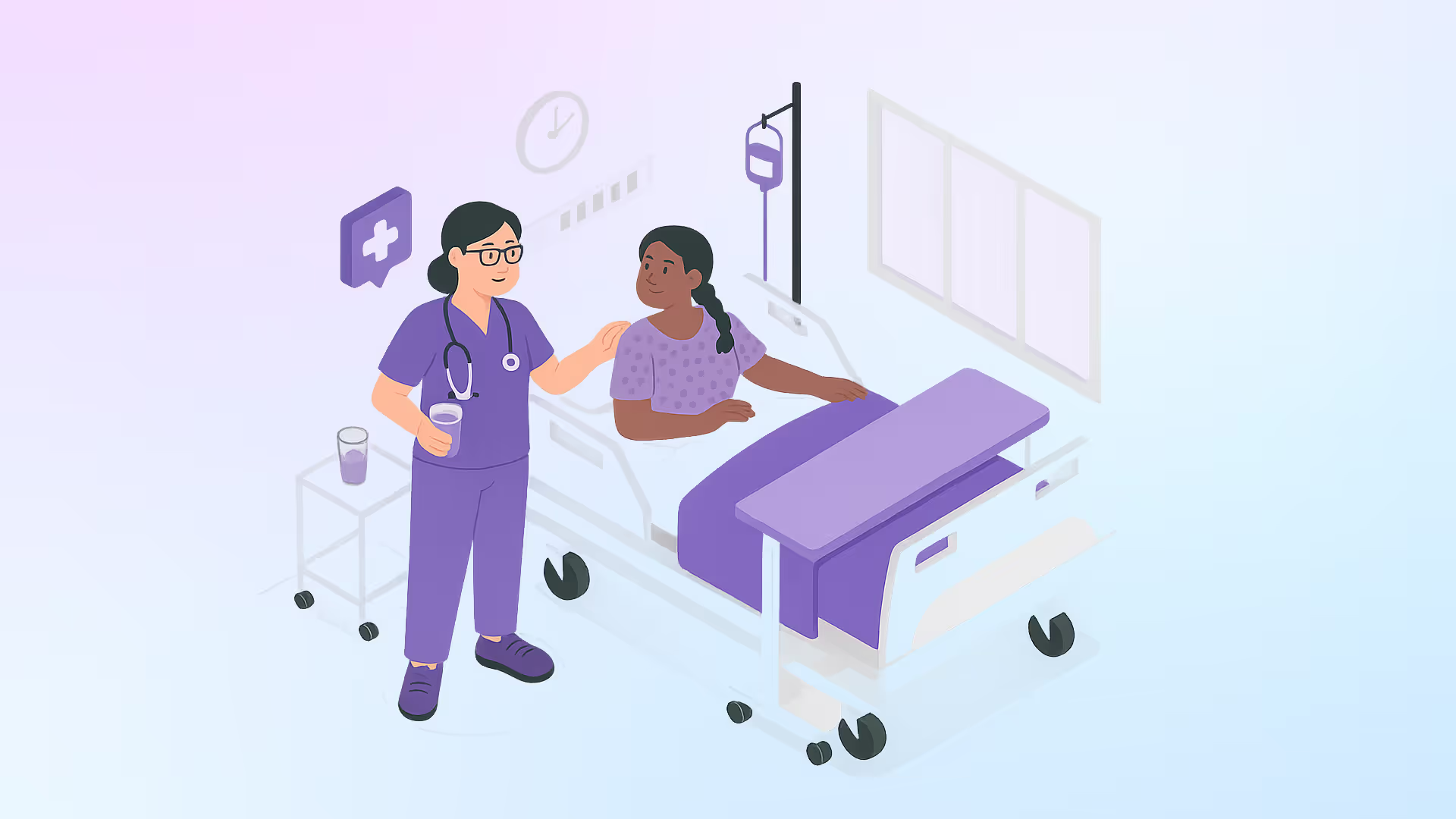TL;DR: Finding Columbia NP Preceptors
- Columbia's healthcare market is expanding rapidly with NP occupations projected to grow 60.7%, creating more opportunities for clinical rotations despite competitive demand among students from multiple regional programs.
- Target specific entity types for faster results: Prisma Health family medicine locations, community health centers and FQHCs, VA Hospital psychiatric services, and health system-owned urgent care facilities often have established student placement protocols.
- Leverage professional networks effectively through the South Carolina Nurses Association – Columbia Chapter meetings and USC College of Nursing alumni connections, where experienced preceptors and students connect directly outside of formal cold calling approaches.
- Start your search early and prepare backup options, as Columbia's competitive market means preceptors fill student slots quickly, especially for specialties like psychiatry and women's health.
- Professional placement services become essential when facing timeline pressure, repeated rejections, or administrative roadblocks—NPHub secures Columbia preceptor matches within days rather than months while handling all paperwork and program coordination.
Finding the right clinical preceptor in Columbia, South Carolina, doesn't have to feel like searching for a needle in a haystack. While you've probably heard stories from fellow nurse practitioner students about endless cold calling and months of rejection emails, here's the reality: Columbia's healthcare landscape is actually expanding opportunities for NP students like you.
The numbers tell a promising story. The South Carolina Department of Employment & Workforce projects NP occupations to grow by 60.7%, making them one of the fastest-growing healthcare professions in the state.
What makes Columbia particularly attractive for your clinical practice experience? The city sits at the heart of South Carolina's healthcare hub, home to major health systems, thriving community health centers, and a network of healthcare professionals who understand the importance of quality nursing education. From Prisma Health's extensive network to the University of South Carolina's longstanding community partnerships—like their 40-year collaboration with The Free Medical Clinic—Columbia offers diverse clinical settings where students can gain essential hands-on experience.
Whether you're pursuing family medicine, psychiatry, women's health, or another specialty, Columbia's diverse healthcare ecosystem provides the foundation for meaningful clinical experience. The key is knowing where to look and how to approach the right people—something that becomes much easier when you have a clear action plan.
The strategies ahead will give you everything you need to succeed in Columbia's market. And if you want to skip straight to connecting with vetted preceptors who are actively accepting students, you can create your free NPHub account while you read through these local resources and contacts.
Quick Reality Check: Columbia's NP Preceptor Landscape
Let's address the elephant in the room: finding clinical preceptors in Columbia isn't easy, but it's far from impossible. The challenge isn't unique to you—nurse practitioner students across the country face similar hurdles. Over the past 20 years, as NP programs have expanded rapidly, the number of available NP preceptors hasn't kept pace with student demand.
The reality in Columbia mirrors national trends. You're competing with students from multiple programs in the area, and many potential preceptors face genuine barriers to teaching. Research shows that lack of time is the most commonly cited reason healthcare professionals decline to precept, followed by concerns about productivity, inadequate employer support, and limited physical space for students.
Here's what's working in your favor: Columbia's healthcare market is expanding, not shrinking. While preceptor availability remains competitive, the city's growing health systems actively need more nurse practitioners—and forward-thinking organizations recognize that precepting the next generation serves their long-term staffing needs.
The opportunity lies in understanding that many excellent preceptors are simply waiting for the right approach. They want to mentor students, but they need the process to be streamlined and supportive. This is why traditional cold calling often falls short, while targeted outreach to organizations with established student placement programs yields better results.
The key insight? Columbia's preceptor landscape isn't broken—it's busy. The preceptors are there, practicing in numerous clinical sites throughout the Midlands region. Success comes from knowing which doors to knock on and how to present yourself as a prepared, responsible student who will enhance rather than burden their practice.
Professional Networks and Specialty Resources in Columbia
Tap Into Columbia's Professional Networks
Building connections within Columbia's healthcare community often opens more doors than cold calling ever will. Former students and experienced preceptors frequently share opportunities through professional channels that never make it to public job boards.
South Carolina Nurses Association – Columbia Chapter hosts meetings where nurse practitioners and students network directly. These gatherings provide natural opportunities to discuss clinical rotations and connect with preceptors who understand the importance of mentoring.
University of South Carolina College of Nursing maintains an active alumni network throughout the Midlands region. Your program coordinators often have established relationships with healthcare professionals who regularly accept students. Don't overlook this resource—many successful placements happen through these existing connections.
Specialty-Focused Opportunities
Family Medicine and Primary Care
Target these entities:
- Prisma Health family medicine locations (multiple sites across Columbia/Lexington).
- Community health centers and FQHCs that are often more receptive to students.
- Independent family practice groups in suburban areas.
- Retail clinics within pharmacies and grocery stores Best approach: Contact office managers directly; emphasize your interest in underserved populations for FQHCs.
Mental Health and Psychiatry
Where to focus your outreach:
- VA Hospital psychiatric services with structured student programs.
- Community mental health centers serving Medicaid populations.
- Outpatient psychiatric clinics affiliated with major health systems.
- Substance abuse treatment facilities.
Women's Health
Priority contacts:
- Hospital-based OB/GYN departments (Prisma Health, Lexington Medical).
- Planned Parenthood locations for reproductive health experience.
- Midwifery practices that welcome NP students.
Urgent Care and Immediate Care
Start with these options:
- Health system-owned urgent care locations (easier approval processes).
- National urgent care chains with established student protocols.
- Occupational health clinics.
If navigating these multiple networks and specialty requirements feels overwhelming—especially while managing your current coursework and responsibilities—consider streamlining your search. Create your free NPHub account to access vetted preceptors across all these specialties who are already familiar with student placement requirements and ready to mentor the next generation of Columbia nurse practitioners.
When to Get Professional Help
Sometimes the DIY approach hits a wall, and recognizing when that happens can save your graduation timeline. If you've been searching for clinical preceptors in Columbia for weeks without success, you're not alone—and you're not out of options.
Red Flags: Time to Switch Strategies
Several warning signs indicate it's time to consider professional placement support:
- Timeline pressure: Your program deadline is weeks away, and you still don't have confirmed preceptors for upcoming clinical rotations. Columbia's competitive market means backup options disappear quickly as semester start dates approach.
- Pattern of rejections: You've contacted 15+ practices or healthcare professionals and received either no responses or consistent "not accepting students" replies. This often indicates you're targeting saturated sites or using an approach that isn't resonating with busy preceptors.
- Administrative roadblocks: Health systems keep referring you in circles between different departments, or clinical coordinators say they'll "get back to you" but never follow through. Large organizations like Prisma Health have complex approval processes that can stall indefinitely.
- Specialty constraints: You need psychiatry, women's health, or other competitive specialty placements where Columbia has limited options and high student demand.
How NPHub Streamlines Columbia Placements
NPHub operates differently in Columbia's market by maintaining established relationships with preceptors across the region's health systems, community centers, and private practices. Rather than you having to cold call and navigate complex approval processes alone, we connect you directly with experienced preceptors who are already committed to mentoring students.
Complete Paperwork Management: We handle every document your program requires—preceptor agreements, site verification forms, malpractice insurance confirmations, and background check coordination. You receive all completed paperwork ready for program submission, eliminating the stress of tracking multiple documents across different organizations.
Rapid Placement Timeline: While traditional searches in Columbia can take 16-24 weeks, NPHub typically secures confirmed placements within 21 business days. This speed comes from working exclusively with preceptors who actively want to mentor students and have already completed our vetting process. No waiting weeks for responses or getting lost in health system bureaucracy.
Most importantly, our Perfect Preceptor Promise backs every placement—if we can't find your ideal match, you receive a full refund.
Your Next Steps As A Nurse Practitioner Student
The difference between students who secure clinical preceptors quickly and those who struggle for months often comes down to having a clear action plan and following through consistently. Columbia's healthcare community responds well to organized, professional approaches—but only if you start with the right strategy.
Take These Actions Today
Connect with your program resources first. Contact your clinical coordinator at your respective program to confirm which preceptors and sites they've worked with successfully in the past. Many students skip this step and miss valuable connections that could save weeks of searching.
Join professional networks immediately. Request membership in the South Carolina Nurses Association and attend their next meeting. Mark your calendar for local healthcare networking events where experienced preceptors and students naturally cross paths.
Create your target list of healthcare entities. Based on your specialty needs, compile contact information for the most promising clinical sites—whether that's Prisma Health family medicine locations, community mental health centers, or urgent care facilities with established student protocols.
The reality is that Columbia's competitive market requires either exceptional networking skills, perfect timing, or access to established preceptor relationships. If managing this search process while maintaining your coursework, work responsibilities, and personal commitments feels overwhelming, you're not alone in needing support.
Start your Columbia preceptor search now by creating your free NPHub account.
Your clinical rotations in Columbia should be about learning and growing, not about administrative stress and endless emails. Whether you choose the DIY approach or professional placement support, the most important step is starting today.
Frequently Asked Questions
1. How far in advance should I start looking for preceptors in Columbia?
Start your preceptor search at least 16-20 weeks before your clinical rotation begins. Columbia's competitive market means experienced preceptors fill their student slots early, especially for in-demand specialties like psychiatry and women's health.
2. Can I complete clinical rotations at multiple locations within Columbia?
Absolutely. Many NP students complete different clinical rotations at various sites throughout the Columbia area to gain diverse experience. You might do family medicine at a Prisma Health location, psychiatry at a community mental health center, and women's health at an independent practice. This approach exposes you to different patient populations and healthcare settings, which strengthens your clinical skills and professional network within the Columbia healthcare community.
3. What should I do if a preceptor cancels my placement last minute?
Last-minute preceptor cancellations happen more often than students expect, usually due to unexpected practice changes, staffing issues, or personal circumstances. Have a backup plan ready with 2-3 alternative preceptors you've already contacted. If you're within 4 weeks of your rotation start date and facing a cancellation, contact your program coordinator immediately—they may have emergency placement options. This situation is exactly when professional placement services like NPHub become valuable, as they maintain relationships with multiple preceptors who can accommodate urgent student needs.
About the author
- NPHub Staff
At NPHub, we live and breathe clinical placements. Our team is made up of nurse practitioners, clinical coordinators, placement advisors, and former students who’ve been through the process themselves. We work directly with NP students across the country to help them secure high-quality preceptorships and graduate on time with confidence. - Last updated
August 25th, 2025 - Fact-checked by
NPHub Clinical Placement Experts & Student Support Team - Sources and references
- https://www.nphub.com/perfect-preceptor-promise
- https://www.nphub.com/rotation-paperwork-process
- https://sc.edu/study/colleges_schools/nursing/
- https://www.scnurses.org/page/APRN/page/page/CurrentApprovedNCPD
- https://www.fhea.com/resource-center/np-clinical-preceptors-challenges-and-opportunities/
- https://sc.edu/study/colleges_schools/nursing/news/2024/free_clinic.php
- https://www.dew.sc.gov/labor-market-information-blog/2025-02/growing-demand-healthcare-sector
Find a preceptor who cares with NPHub
Book a rotation.webp)








.webp)


.webp)



%20(3)%20(2).svg)
.webp)